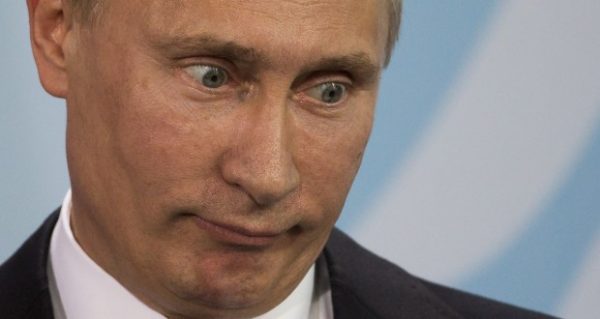 Vladimir Putin’s new super-spy agency will be ‘even more powerful’ than the infamous KGB, according to Russian news reports.
Vladimir Putin’s new super-spy agency will be ‘even more powerful’ than the infamous KGB, according to Russian news reports.
The president, whose party won a huge victory in the country’s parliamentary elections on Sunday, is planning to create a new spy ministry reminiscent of the Soviet security agency.
President Putin wants to strengthen control over the country’s top spies and dampen any potential protests despite the resounding win for his pro-Kremlin United Russia.
The new mega-spy agency the Ministry of State Security (MGB) will even carry the same name as the Stalin-era intelligence agency, which existed between 1946 and 1953, before the creation of the KGB (Committee for State Security).
Business paper Kommersant quoted anonymous officials as saying that the new body will be established before Russia’s 2018 elections and will closely resemble the KGB.
The reforms would mean most of the much-feared KGB’s functions will be reinstated and a “single powerful security structure” will be created.
The changes would also grant the new ministry powers to not only conduct criminal investigations but also give it oversight on cases ran by Russia’s other powerful law enforcement bodies.
Putin served as a KGB officer in Soviet-era East Germany and is believed to have been responsible for spying on dissidents in his hometown of Leningrad, now St Petersburg.
United Russia strengthened its grip on the Duma , the lower house of parliament, this weekend, taking three-quarters of its 450 seats – its largest ever majority.
The ruling United Russia party, founded by Putin almost 16 years ago after he first became president, was on track to win 343 seats or 76 percent of 450 available seats in Russia’s Duma,
the lower house of parliament, the Central Election Commission said, after 93 percent of ballots had been counted.
That is up from 238 seats in the last parliamentary election, in 2011, and would allow United Russia to change the constitution, although Putin can run again under the existing one as he was prime minister between his second and third terms.
Liberal opposition parties failed to win any seats, after holding just one before.
Not everything went Putin’s way though. Near complete results showed turnout was around 48 percent, down from nearly 60 percent in 2011, suggesting apathy among some Russians and a softening of enthusiasm for the ruling elite.
Putin, speaking to United Russia campaign staff a few minutes after polling stations closed on Sunday night, said the win showed voters still trusted the leadership despite an economic slowdown made worse by Western sanctions over Ukraine.
MIRROR.UK

Leave a Reply
You must be logged in to post a comment.